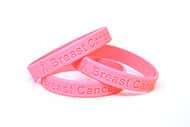1. Do you smoke or live with someone who does?
2. Is commuting to work the most physical activity you get?
3. Given a choice between shredded wheat and fried eggs, do you always pick the eggs—preferably with bacon?
4. Has one of your parents, grandparents or siblings ever been diagnosed with cancer?
5. Do you put off going to the doctor until you’re feeling awful?
Every “yes” could possibly increase your risk for cancer. But relax. Knowing your risk factors is the first step toward improving your chances of stopping cancer in its most curable early stages—or avoiding it entirely. According to the American Cancer Society, more than a third of all cancer deaths could be prevented with lifestyle changes. Read on to learn where to start.
If You Answered Yes to Question 1: Your Assignment: Kick the sticks
Smoking is directly linked to at least 15 different kinds of cancer, including most cases of lung cancer, which kills more people than colon, breast and prostate cancers combined.
Nevertheless, giving up tobacco might be one of the hardest things you ever do. After all, it’s addictive. But the payoff is huge: Quitting smoking is the single best way to cut your cancer risk.
There’s another benefit, too—quitting helps protect the people around you. Studies show that secondhand smoke causes approximately 3,000 lung cancer deaths each year. And if you’re the nonsmoker in your household, persuading your loved ones to kick the habit is a great investment in your own health.
If You Answered Yes to Questions 2 and 3: Your Assignment: Eat better, move more
Eating right and exercising is a strong defense against cancer. Colon, endometrial and postmenopausal breast cancer, as well as some kidney cancers, are strongly associated with obesity. What’s more, there’s plenty of evidence that people who exercise are less likely to develop cancer, especially of the breast and colon.
Eat lots of fruits and vegetables. Go easy on the fat, sugar and alcohol. Walk 30 minutes on most days of the week, climb stairs instead of taking the elevator, go dancing. These basic, sensible steps can help keep your weight within the healthy range for your height.
If You Answered Yes to Question 4: Your Assignment: Know your history
Knowing your family health history can be a crucial tool for prevention and early detection. Genetic tests are available for only a handful of specific cancers, so it’s still important to learn as much as you can about your family’s health history.
In your research, include your parents and siblings, and your grandparents, aunts, uncles and first cousins. Write down what kind of cancer they had, when they were diagnosed and at what age, what treatment they received and how successful it was. This information will help your doctor spot any patterns worth noting.
If You Answered Yes to Question 5: Your Assignment: Watch yourself
Here’s one thing you can do for your health that requires almost no effort at all: notice changes in your body that might suggest something’s wrong.
No one knows your body as well as you do. It only takes a few minutes to check for lumps where lumps shouldn’t be, glance at moles and freckles to make sure they haven’t changed, and ask yourself how long an ache or twitch has been bothering you. Those few minutes might save your life.
Cancer Care Close to Home
The Cancer Institute at Gwinnett Medical Center offers the area’s top oncologists, radiologists, and cancer treatment experts. We offer a full range of advanced, comprehensive cancer-fighting services including genetic testing. But we don’t just treat cancer – we treat the individual, with services like patient navigators, oncology rehabilitation, survivorship support and more. Explore all we have to offer at gwinnettmedicalcenter.org/cancer.


